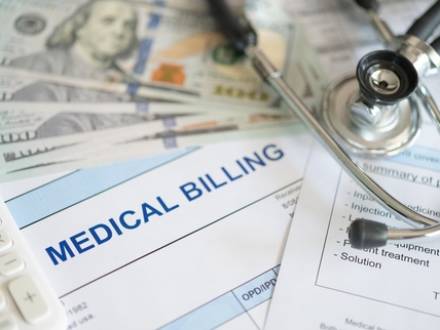What Should Injury Victims Know About Illinois’ New Medical Debt Law?
 If you were seriously hurt in a car crash, slip and fall, or another type of accident in Illinois, you may be worried not only about your physical recovery but also about how to afford it. Medical bills, even for short hospital stays or ambulance rides, add up quickly.
If you were seriously hurt in a car crash, slip and fall, or another type of accident in Illinois, you may be worried not only about your physical recovery but also about how to afford it. Medical bills, even for short hospital stays or ambulance rides, add up quickly.
The Illinois Medical Debt Relief Act, which took effect in January 2024, is a targeted law that forgives certain medical debt for qualifying low-income residents. It applies mostly to old debt that is purchased and forgiven through a state program, rather than changing how all hospitals and providers handle billing. If you are facing mounting medical bills after an accident, speak with a Naperville, IL personal injury lawyer to understand whether this law could apply to your case.
How Can the Medical Debt Relief Act Affect Your Personal Injury Case?
Many protections for patients, such as requiring nonprofit hospitals to screen for financial assistance before sending bills to collections, have been in place for a while already under federal law. The Illinois Medical Debt Relief Act goes further by establishing a state-run program that automatically forgives certain medical debts for eligible low- and moderate-income residents, often without requiring the patient to apply.
However, there is an important legal consequence that injury victims must understand: if your medical bills are forgiven under this program, they no longer exist as an owed expense. In Illinois personal injury cases, courts generally do not allow plaintiffs to recover damages for bills they did not pay or do not still owe. Forgiven medical debt will not be included as part of your economic damages, because you are no longer financially responsible for it.
This does not prevent you from being able to sue for other losses. You can still seek compensation for other economic damages, such as lost income or diminished earning capacity, pain and suffering, other costs related to the accident, and any medical expenses that you remain responsible for.
The law might reduce the amount of recoverable medical expenses in your claim, but it does not take away your right to pursue compensation for harm you suffered because of someone else’s negligence. The impact of the Medical Debt Relief Act might be confusing, but a knowledgeable lawyer can explain how it affects your claim and offer guidance on protecting your interests.
Should I Accept a Quick Settlement From the Insurance Company?
Insurance companies know that injury victims are often under financial pressure, and they may use that to their advantage by offering a fast but low settlement. These early offers usually do not account for future medical costs, ongoing treatment, or non-financial damages.
If your medical bills meet the criteria for forgiveness under the new law, you may be protected from immediate collection efforts, which could give you more time to weigh your legal options. A personal injury attorney can help you determine whether a settlement offer is fair and advocate for the compensation you deserve.
How Can a Lawyer Help With Medical Bills During a Personal Injury Case?
A skilled attorney does more than represent you in court. Your lawyer can help negotiate with healthcare providers, delay or reduce bill collections, and advise you on using any financial assistance programs you may qualify for. In some cases, a lawyer may even help arrange for medical treatment under a lien, which means the provider agrees to wait for payment until your case is resolved.
Contact a Lombard, IL Personal Injury Lawyer
If you are struggling with medical debt after an injury, call a Naperville, IL personal injury attorney at Mevorah & Giglio Law Offices for help. We offer free case evaluations as well as Saturday and evening appointments for your convenience. Call us today at 630-932-9100 to learn how we can advocate for your financial and physical recovery.
 English,
English,
 Spanish,
Spanish,
 Polish,
Polish,
 Urdu
Urdu













 Make a Payment
Make a Payment



